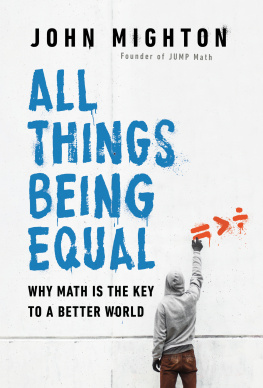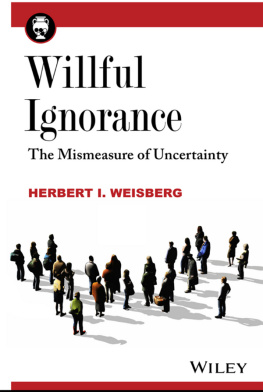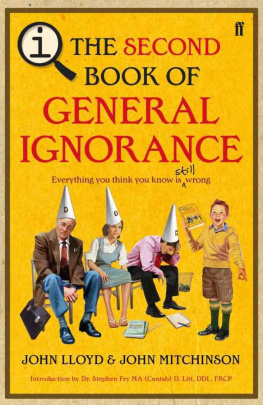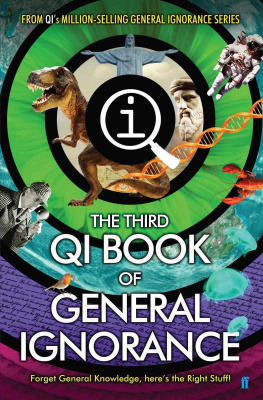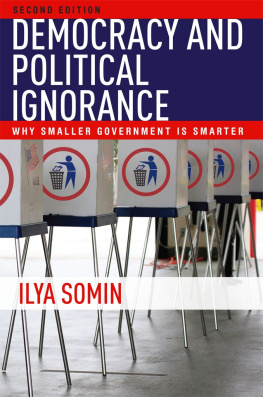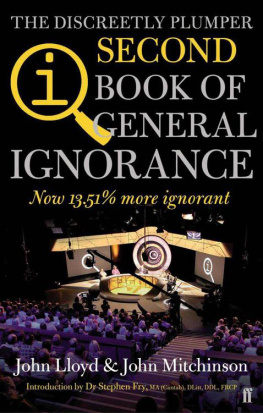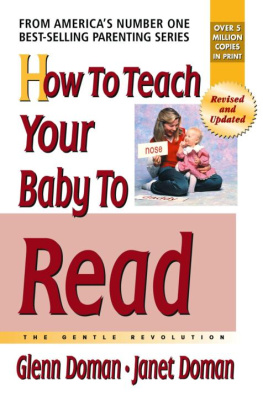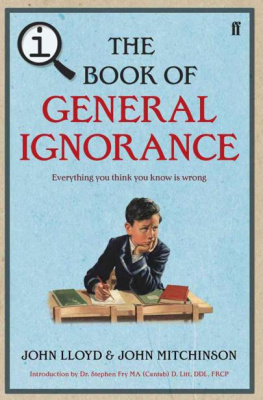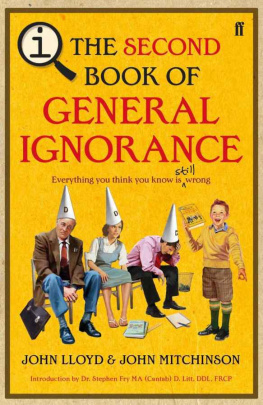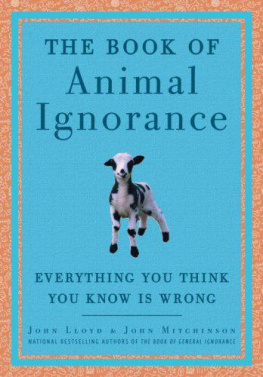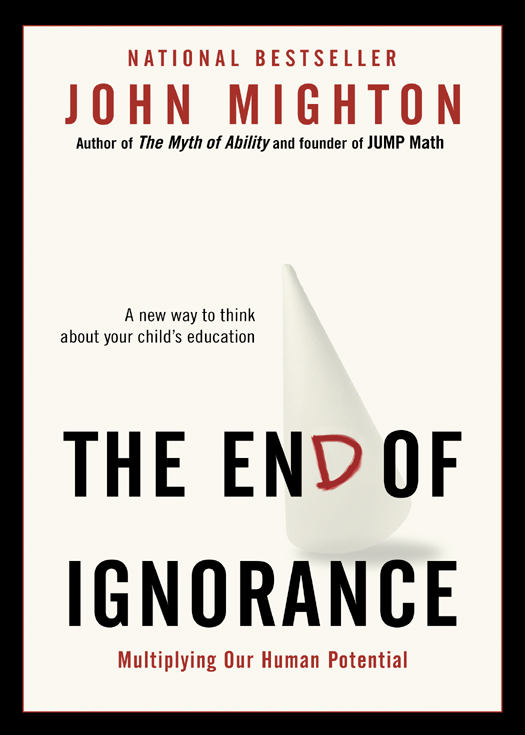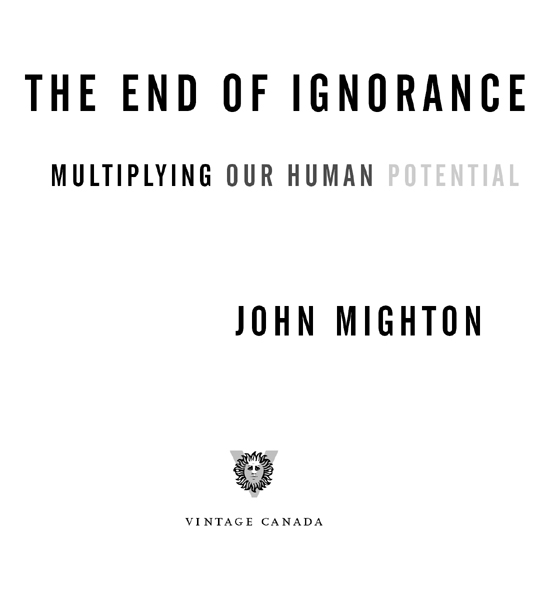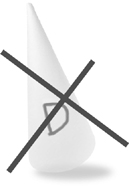
VINTAGE CANADA EDITION, 2008
Copyright 2007 John Mighton
All rights reserved under International and Pan-American Copyright Conventions. No part of this book may be reproduced in any form or by any electronic or mechanical means, including information storage and retrieval systems, without permission in writing from the publisher, except by a reviewer, who may quote brief passages in a review.
Published in Canada by Vintage Canada, a division of Random House of Canada Limited, Toronto, in 2008. Originally published in hardcover in Canada by Alfred A. Knopf Canada, a division of Random House of Canada Limited, Toronto, in 2007. Distributed by Random House of Canada Limited, Toronto.
Vintage Canada and colophon are registered trademarks of Random House of Canada Limited.
www.randomhouse.ca
Library and Archives Canada Cataloguing in Publication
Mighton, John, 1957
The end of ignorance : multiplying our human potential / John Mighton.
eISBN: 978-0-307-37344-1
1. Learning ability. 2. Intellect. 3. Mathematical ability.
4. Attention. 5. EducationAims and objectives. 6. Education
Philosophy. 7. Interdisciplinary approach in education.
8. Educational psychology. I. Title.
LB 14.7.M53 2008 370.1 C2007-906940-1
v3.1
CONTENTS
CHAPTER ONE
THE WASTE ETHIC
T WENTY-FIVE YEARS AGO , when I was studying philosophy at McMaster University, I wanted to write a book called The Waste Ethic, which I hoped would be the first attempt in the history of the social sciences to accurately measure the amount of time people waste at work. I wasnt interested in simply tracking the time wasted by people who hate their jobs or who are totally unqualified for their positions. I wanted to find out what proportion of our work goes into producing, marketing and disposing of the vast array of products that, before the advent of mass media, nobody knew they needed or wanted. I never did find time to write that book, but having spent the past twenty years teaching mathematics to thousands of children and teenagersboth gifted and challenged, and from both affluent and impoverished homesI think I have a better idea of why we as a society are so efficient at wasting time.
It seems to me that two kinds of ignorance are always at work in our society, one extremely destructive and the other healthy. My career in theatre was initially shaped by the first kind of ignorance, in ways I am only beginning to understand. I came to writing plays rather late in life because I grew up thinking that to be an artist you needed to be born with a special gift. It wasnt until I read Sylvia Plaths letters to her mother and saw how as a teenager she had learned her craft in small, determined steps, dismantling poems like motors to see how they worked and writing imitations of the things she loved, that I began to believe there was a path I could follow to develop a voice of my own.
The destructive form of ignorance has divided many societies: it is the ignorance that says there are fundamental, inborn differences between people, between peasants and nobility or minorities and majorities. It is this ignorance that leads us, even in this affluent age, to neglect the majority of children by educating them in schools in which only a small minority are expected to naturally love or excel at learning.
Two years ago, during a visit to the York Detention Centre, I saw the effects of this ignorance in its most devastating form. I had been asked to teach a lesson in mathematics to a group of teenagers who were awaiting trial and who were not thrilled to be spending their afternoon doing math. I told the students I had once struggled with mathematics myself and I promised to try to make the subject more interesting and easier than they might remember from school. I reassured them that if they didnt understand something in my lesson it would be my fault for not explaining it properly, so they could ask me to explain it again. The teenagers responded to my promise exactly as I have seen young children respond: they raced through their worksheets and called for the tutors to give them extra work. One girl, whom I had heard complaining at the beginning of the lesson, made me put a check mark beside each of her answers. When I finished she said, Ive never had that in my life. Ive only had this, and she wrote a large X across her page.
The letter X is a fitting symbol for our failure to care for those individuals who, like the girl at the detention centre, happen to struggle or fall behind in school or in life. The crossed lines evoke the barriers we place, out of ignorance and indifference, between the majority of children and their unrealized potential. But the letter X is also a universal sign for a different and potentially redeeming kind of ignorance: in the sciences and in mathematics, it is the letter most commonly used to stand for the unknown.
Einstein once wrote:
The most beautiful and deepest experience one can have is the sense of the mysterious One who has never had this experience seems to me if not dead, then at least blind. To sense that behind anything that can be experienced there is something that our mind cannot grasp and whose beauty and sublimity reaches us only indirectly and as a feeble reflection, this is religiousness. In this sense I am religious.
The sense of the mysterious that Einstein described can define a person as much as their sense of courage or integrity or charity. People who experience the ineffable mystery of the world also tend to have a deep sense of humility, as Socrates demonstrated when he admitted how little he knew to the Athenians who put him on trial for his life. This sense of the mysterious drives such people to pull aside the veil or wipe away the fog that separates them from the mystery.
Every child who is well cared for naturally develops a sense of the mysterious. The feeling that behind every door another world is waiting can make a childs world a paradise. But, once at school, children often begin to lose their sense of the hidden beauty of the world. By having to compete and be compared to their peers, many lose faith in their intelligence and their imagination; by having to struggle so hard to keep up, many come to believe that the world is beyond their understanding. The magical world that they once inhabited begins to recede until they can see no point in dreaming about or searching for anything beyond the world of their immediate needs and desires.
People are often surprised when I tell them that I am a mathematician as well as a playwright. Some people seem to believe that the brain can hold only one kind of information, or that when one side is working the other has to be left empty for storage. If they are lucky, students graduating from high school will likely believe that they have only one or two talents and that the majority of subjects offered at school are either uninteresting or beyond their grasp. As a society we are living under a vast spell or illusion. We have effectively hypnotized ourselves, but not in a single performance. It has taken twelve or thirteen years of school to put us in a suggestive state so that we all believe more in our limitations than in our potential, and it is difficult for anyone to snap their fingers to break the trance.


